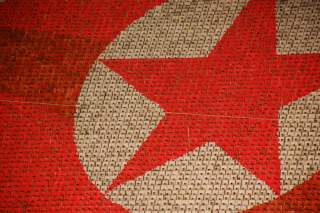North Korean State-Sponsored Terrorism Must Not Be Tolerated
If it is proven that Kim Jong-nam was killed by women who were instigated by North Korean agents, Kuala Lumpur should mete out suitable court-sanctioned punishments.
The murder of Kim Jong-nam — the estranged eldest brother of North Korean Supreme Leader Kim Jong-un — in Kuala Lumpur International Airport should come as no surprise to those familiar with the violent ways of the Kim regime. CCTV footage shows two women — believed to have been using poison — wiping a cloth on Jong-nam. The two were allegedly instigated to assassinate the elder Kim by DPRK agents acting under orders from Jong-un.
Such violence shows a blatant disregard for acceptable international conduct. Just as the Kim regime expects other states to respect the sovereignty of North Korean soil, so too should the former refrain from employing violence overseas. Kim Jong-un should be strictly reminded that North Korean overseas activities must conform to established international ethical norms.
Kim Jong-nam’s murder is not the first time that Pyongyang has ordered killings overseas. The bloody trail of state-directed terrorism began with North Korea’s first Supreme Leader and Kim Jong-un’s grandfather, Kim Il-sung. In 1968 he sent a team of DPRK special forces commandos to infiltrate the Demilitarized Zone separating North and South Korea in order to attack Cheong Wa Dae, the official residence of the South Korean President also known as the Blue House, and kill then president Park Chung-hee.
Although the Blue House raid was unsuccessful, another assassination attempt on Park — supported by de facto North Korean representatives in Japan — was carried out on 15 August 1974. This was also unsuccessful but resulted in the death of Park’s wife, first lady Yuk Young-soo.
Subsequently, North Korean overseas covert operations were entrusted to Kim Jong-il — Kim Jong-un’s father. Under his leadership, the two most prominent overseas terrorist acts were an assassination attempt on then South Korean President Chun Doo-hwan on 9 October 1983 in Yangon (then Rangoon) and the bombing of Korean Air Flight 858 on 28 November 1987. In the first instance, explosives were planted in a mausoleum with the intent to kill President Chun but missed their target and instead claimed the lives of over 20 others including several ROK cabinet ministers. In the second case, two saboteurs, acting under direct orders from Kim Jong-il, planted explosives on a Korean Air Boeing 707 carrying mostly South Korean passengers and crew. Korean Air Flight 858 exploded over the Andaman Sea, killing all 115 on board.
The Kim regime displays a disturbing lack of respect for the laws of other states, along with a blatant disregard for the fundamental value of human life, killing those it deems threatening, whether or not they are subject to the DPRK’s territorial jurisdiction.
States which have diplomatic relations with North Korea ought to make it unequivocally clear to the North’s ambassadors that any illegal activity by North Koreans or third party foreign nationals will not be tolerated, and will be prosecuted to the full extent of domestic law. It must be communicated to the Kim regime, through its diplomatic representatives, that the overseas illegal actions of the DPRK’s covert agencies will carry a significant diplomatic cost.
In light of the recent assassination of Kim Jong-nam on Malaysian soil, Kuala Lumpur has arrested and might well charge those involved. The Royal Malaysian Police have identified four North Korean men who suspiciously fled the country on the day that Kim was killed and could be involved in the murder. Malaysia is now seeking their arrest and extradition back to Malaysia from Pyongyang.
But in the interest of deterring Pyongyang from engaging in such illegal lethal operations in the future, Kuala Lumpur should consider measures related to diplomatic censure to send the message that Malaysia takes its laws and sovereignty seriously. As of now, Malaysia’s government is taking this path, warning Pyongyang that it cannot be browbeaten. Two autopsies, which have been actively resisted by the DPRK embassy, have been carried out on Kim Jong-nam’s body, and the Malaysian government has been unwilling to release the corpse until the next of kin arrives to claim it. Kuala Lumpur has also recalled its ambassador to Pyongyang and summoned the North Korean ambassador to register Malaysian disapproval.
If it is proven that Kim Jong-nam was killed by women who were instigated by North Korean agents, Kuala Lumpur should mete out suitable court-sanctioned punishments, suspend diplomatic relations with the DPRK, and even revoke the work permits/visas of North Koreans working in Malaysia. The punitive effects of these measures are tangible. North Korea relies on North Koreans working abroad to conduct meetings with third party states on Malaysian soil (which cannot be done with diplomatic suspension) and needs the remittance income of its citizens working in Malaysia to keep the North’s moribund economy afloat. North Korean state-sponsored terrorism must not be tolerated.
Liang Tuang Nah is a Research Fellow at the Institute of Defence and Strategic Studies, a constituent unit of the S. Rajaratnam School of International Studies (RSIS), Nanyang Technological University.
This first appeared in East Asia Forum here.
Image Credit: Creative Commons.

